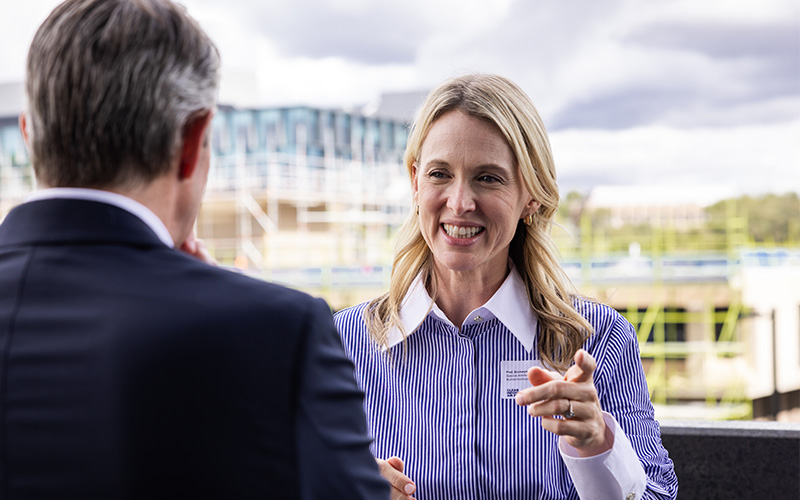
Burnet special advisor clean air, Dr Bronwyn King AO, spoke with Tim Webster on ABC Radio Sydney about the need to improve indoor air quality to combat the impacts of pollution, bushfire smoke, airborne infections and a changing climate, and to be better prepared for future pandemics.
Dr King said a lack of indoor air quality standards in Australia meant people were unaware of the air quality in the buildings where they spent most of their time.
“We spend about 90 per cent of our time indoors but there is nothing to protect us and guarantee us in the same way that we expect the food and drink we consume when we go to a restaurant is safe and healthy,” she said.
“We would expect that the air we breathe is clean, but actually there is no obligation on building owners at the moment to ensure that's the case, and we want to see that change.”
Dr King said an increase in respiratory viruses including influenza, measles, COVID-19, whooping cough and respiratory syncytial virus (RSV) was driving a need for improved indoor air quality.
She pointed to equivalent standards for food drink safety as a benchmark.
“We need our leaders to act and put in place public health mechanisms that absolutely guarantee that our air is safe to breathe,” she said.
“Clean air is something you can't control. We need regulations in place because how can you control the air in your office? How can you do that as a worker? How can students control the air inside their classroom? And how can the people sitting on the train with you - how can they control the air quality? They can't. We need a layer of public health protection to sit across the top.”
Dr King said awareness and education about the importance of clean indoor air would help people change their mindset.
“If you think of our SunSmart awareness or road safety campaigns, the Australian community is really good at adopting behavioural changes when it is informed,” she said.
“We have an opportunity now to educate the public and make people aware of how important it is to ensure the air they are breathing is safe and clean.”
She said the World Health Organization’s recent acknowledgment of COVID-19 as an airborne disease, emphasised the need for clean indoor air to prevent the spread of transmissible infections.
“COVID is an airborne disease. It’s a disease you get by breathing in air that is not clean. We need to clean the air so that we can reduce the risk of people bringing COVID [and other airborne infections] home to their families and loved ones, and so that we can make our schools, workplaces and public transport, like trains or buses, safer than they currently are,” she said.
Dr King said practical measures people could take to improve air quality included the widespread adoption of high-quality air purifiers, equipped with effective filters to remove pollutants, including smoke, pollutants, viruses and bacteria.
Dr King said the best way to address poor indoor air quality in the long-term was to integrate indoor air quality standards into building codes to promote healthier indoor environments.
“We need to embed indoor air quality into our design codes and our building codes,” she said.
“It's almost guaranteed that another pandemic is coming so we need to future proof our buildings for that.”
Dr King said the implications of climate change would have an ongoing effect on indoor air quality.
“We know climate change is here, and we are going to expect more bushfires and more problems in terms of our air quality in the future,” she said.
